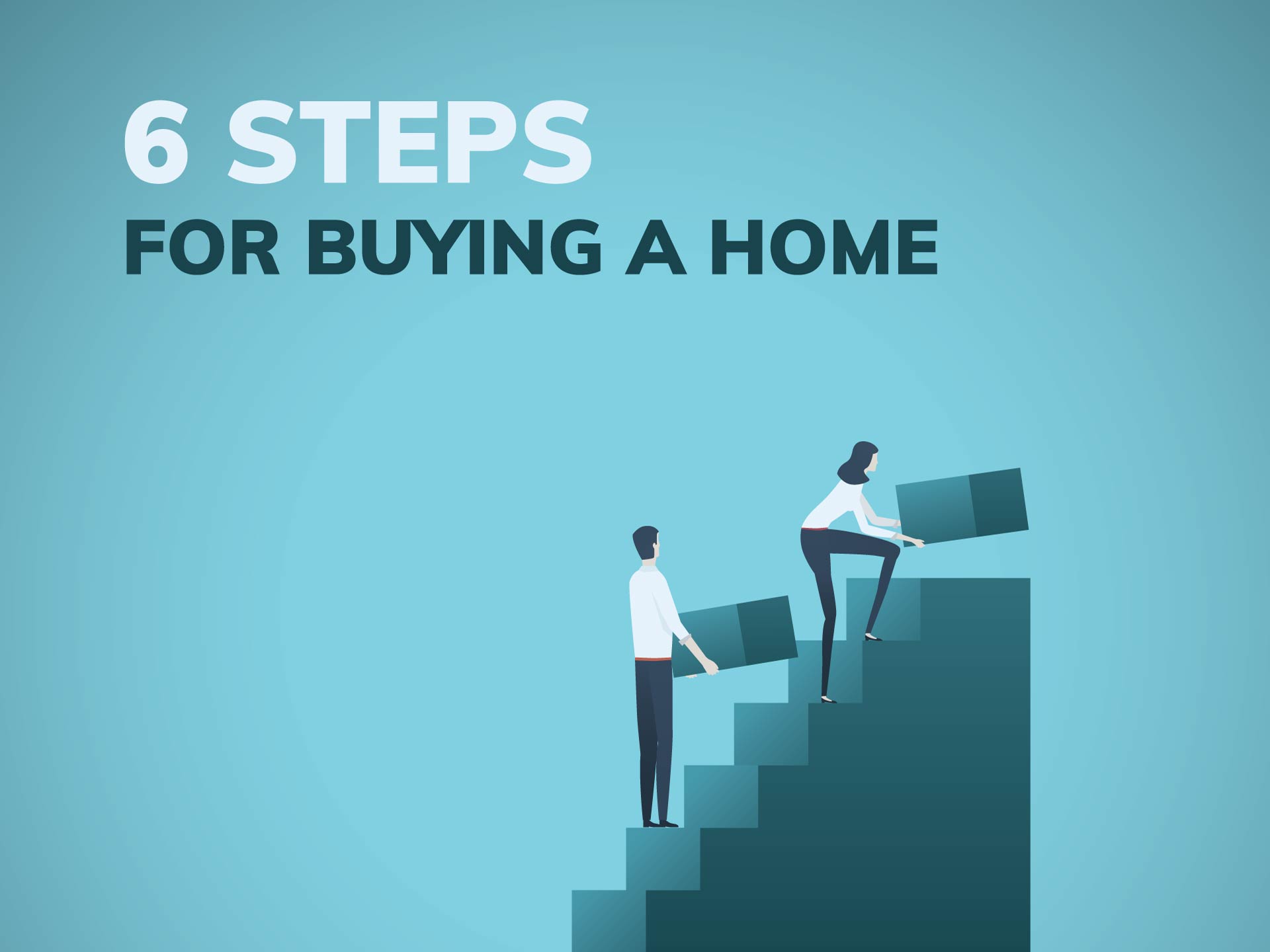How to Buy Your First Home: 6 Steps
TABLE OF CONTENTS (skip ahead)
by Homepie | Published Dec 15, 2020
Are you thinking of buying your first home? You’re not alone. Spurred by record low mortgage rates and the desire for more room to work from home, first-time home buyers have comprised the most active segment of the housing market during the pandemic.
Owning your own home is a significant part of the American dream. Still, it can be an intimidating process for first-timers – especially for millennials who grew up during the economic ravages of the Great Recession. According to a Bankrate survey, about 63 percent of millennial homeowners said they had regrets about their current home purchase — the highest share of any other generation.
It doesn’t have to be that way. By following some tried-and-true steps, you can navigate the purchase process and be on your way to enjoying the pride and benefits of owning your first home.
Step 1: Review Your Finances
It’s easy to get excited when you see an ad for a perfect house in a great neighborhood. But before you start clicking on online listings and picturing yourself in that dream home, you should take a serious look at your financial situation.
You need to have enough money saved up to cover a down payment, closing fees, moving costs, and some of the ongoing expenses of owning a home.
- Down payment. This amount depends on your lender and the type of mortgage you choose. Some conventional loans for first-time homebuyers with excellent credit allow as little as 3 percent down.
- Closing costs: These costs can run 3 to 5 percent of your loan amount and may include title insurance, attorney fees, appraisals, inspections, and taxes.
- Move-in expenses: You’ll need cash for movers and some immediate home repairs, purchases, and furnishings.
- Homeowners insurance: Lenders will want to know you have a policy in place and ready to go at the time of closing.
Step 2: Check Your Credit
Your next step is to find out if you qualify for a home loan. Lenders will look at your credit history, how much other debt you have, your monthly income, and other factors such as how long you’ve held your current job.
Most sellers will not entertain a purchase offer that does not come with a pre-approved mortgage. There are several different types of mortgages from which to choose. Many states offer first-time homebuyer programs that offer tax credits and help with down payments and closing costs.
You can use an online mortgage calculator to compare interest rates and fees. Most lenders recommend that your mortgage payment should not be more than 28% of your monthly gross (pre-tax) income.
Buy the house you know that you can afford. For example, if you are a married couple with two incomes, consider what will happen if one of you launches a start-up business or becomes a full-time parent.
Step 3: Determine What Type of Home You Need
A first home does not have to be a traditional three-bedroom house with a two-car garage and a white picket fence. You have many other options, including a condominium, townhouse, duplex, co-operative, or multi-family building. If your bar is too high, you could delay the process of earning equity in real estate.
Your decision will come down to finding the best fit for your budget, your needs, and your desires for a first home. You’ll want to weigh the pros and cons of a variety of details, including the home’s location, size, and condition. Consider amenities that are must-haves prior to scheduling any showings. Essential things like its heating and cooling system, kitchen layout, landscaping, and backyard.
Step 4: Plan For Your Future
Experts say that it can take an average of four years to recoup the costs of buying a home. Therefore, you need to think down the road about your home purchase.
Don’t buy a home that you hope to outgrow in a few years. If you aren’t sure that a house will meet your needs in three to five years, it may not be the right choice for you.
Ask yourself some important questions. How long will you stay at your current job? Are children in your future? What about pets?
Step 5: Think Beyond the Purchase Price
When you’re shopping for a home, it’s easy to fixate on cosmetic details – such as the need for a fresh coat of paint or a new kitchen counter. Fixer-uppers often sell for less per square foot than move-in ready homes. However, you’ll need to make sure your budget can handle any needed repairs or remodeling.
Even if you purchase a used house that’s move-in ready, set aside some money to make some essential home improvements. You’ll probably want to replace the flooring in some or all of the rooms, especially carpet.
Additionally, don’t sweat the relatively small stuff while not paying enough attention to potentially crippling ongoing expenses. Carefully consider extras like the cost of maintaining an in-ground swimming pool or paying monthly homeowner association fees. Real estate taxes in some communities also can add up quickly.
Step 6: Find the Right Guidance
If the process of buying your first house seems intimidating, a real estate agent will help you find homes that meet your criteria and walk you through the process. They will assist you in making an offer, scheduling inspections, and completing paperwork. Most agents receive a commission from the seller’s proceeds. That means there’s no expense for you as a buyer for using their services.
You also have another exciting option. You can simplify the whole process by working with a real estate platform like homepie. Here are a few of the advantages of buying your home with homepie.
- Sellers often pass on the money they save by not paying agent commissions to their buyers.
- Buyers communicate directly with sellers, allowing more flexibility and fewer schedules to work around for showings.
- Homepie offers support throughout the whole process, from contract to escrow!
The economic pressure and the stress of the pandemic have reminded each of us about the importance of home. According to research published by the Joint Center for Housing Studies of Harvard University, we gain social and psychological benefits from homeownership.
According to the study, homeowners usually are more involved in their communities, and communities with owner-occupied homes tend to be safer places to live.
But perhaps the most significant benefit of homeownership is the opportunity it brings to build wealth.
As you pay off your mortgage each month, you create more equity – or value – in your home. As your property increases in value, so does your opportunity to sell for a profit. Your home, therefore, is your most valuable nest egg.
Buying your first home can be an exciting and even overwhelming time. For most people, a home purchase is the biggest financial undertaking of their lives. However, when you take the process step by step – just as you do with other big decisions in your life – you will be able to select the home you want at the price you can afford.
If you have questions about how you can find a For Sale By Owner home near you, visit homepie.com.





